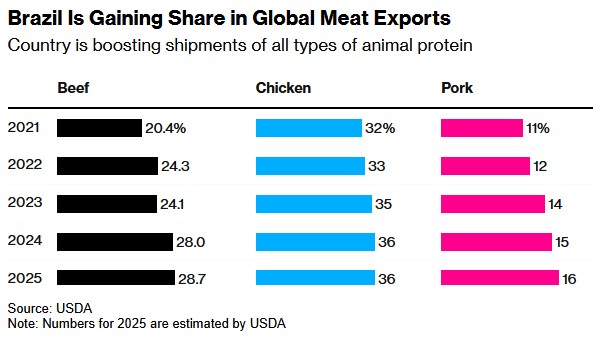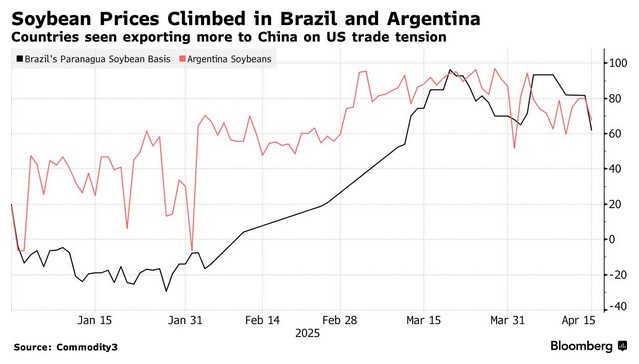Countries that … come out won from trade war

OR Brazil And Argentina is emerging as two of the countries won by the trade war, which also overturns agricultural products.
The escalation of tensions between the US and China – the largest supplier and the largest consumer of agricultural products in the world, respectively – has created an opportunity for Latin American countries to increase their exports to products such as meat and cereals, seeking a larger share of Bloom.
The two countries that… come out of the trade war
The most recent opportunity that is being opened seems to be meat. The duties imposed by US President Donald Trump on eight of the ten largest American beef buyers have already remodeled trade flows, increasing the exports of Brazilian beef to markets such as Algeria and Turkey.
Japan, the second largest American beef customer, is now in advanced negotiations to start imports of cheaper meat than Brazil.
In addition, any financial deceleration caused by the trade war will also push other international beef buyers to turn to lower cost suppliers, mainly to Brazil, according to Datagro market analyst Guillermo Zank.
So far, China’s removal from American products seems to be a key factor in boosting Brazilian and Argentina exports.
The Asian superpower, in April, ordered huge quantities of soy from Brazil, giving the country a significant advantage in rural competition with the US, and recently reached an agreement to resume Argentina poultry exports.
Increasing exports to Europe is also a possibility, as negotiations on trade agreement between Mercosur – the Latin American trade union – and the European Union are gaining momentum, according to Professor of World Rural Economy at Insper, Markos Zank.
Argentine Sorgos producers may also benefit from higher prices, as there are few alternative suppliers of the particular cereal used as a feed. China is the largest buyer in the world and the US is the main supplier.
If commercial restrictions continue until autumn, when the US is starting to harvest soy and corn, Latin American grain producers will have another opportunity to offer alternative supplies.
« If this turmoil lasts until the fourth quarter, when the US harvested both China and Europe are turning soy and corn markets there, the US will not be able to export and these countries will continue to buy from South America instead of the US, » Tella in Buenos Aires.
However, the variability of prices in agricultural markets remains a risk to all exporters. While the natural premiums for soybeans in Brazil and Argentina initially increased after the announcements of duties, a global recession would probably reduce demand and push the prices of future fulfillment contracts.
Even in this case, Datagro’s Zank notes that « it is more likely that an economy introduces beef to consume cheap meat than expensive ».









